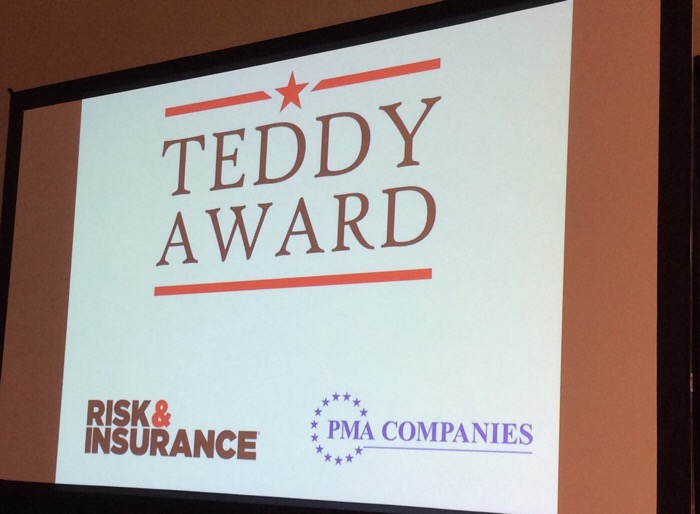Teddy Award-Winning Employers Showcase Their Successful Strategies
This roundtable session at the 2016 National Workers’ Compensation & Disability Conference provided key strategies and tangible practices from this year’s Teddy Award Winners.
Panelists included:
- Danielle Hill, Human Resources Compliance Manager, Hampton Roads Transit
- Jennifer Massey, Corporate Director of Safety and Health and Claims Management, Harder Mechanical Contractors
- Laurie English, Senior VP, Chief Human Resources Officer, Excela Health
Hampton Roads Transit is a public transportation agency that did a complete overhaul of their workers’ compensation and safety programs. Hazards they face include driver accidents, passenger violence and overexertion. Their claims system had been doubling annually with little accountability built into their system. After the program overhaul, they saw a 94% drop in days per claims and lost-time claims fell decreased by 98%.
Hampton Roads Transit:
- Marketed their light duty program to managers. They made their managers aware of what a light-duty job consists of and the variety of positions available to them. For example, since the bus drivers know the routes, they could help with customer service.
- Changed the safety perception among workers. Starting with a safety survey, they learned that employees did not feel that they could speak openly about safety issues and that their wants were not being met. They began having meetings with their safety departments, mechanics, supervisors and union representatives and, ultimately, created a task force. They established new policies and procedures, including safety videos to reinforce their safety message. They also trained their supervisors how to communicate their safety message to their team.
- Hosts an annual workers’ compensation open house with their case managers, doctors and workers’ comp attorneys to show them the work environment. They provide them with a binder of all positions with a list of all the restrictions they can accommodate and also review their numbers with them.
Harder Mechanical is a specialty mechanical contractor. They have high-specialized workers who are highly paid. Exposures include dangerous equipment and changing environments. They have a keen focus on zero lost time. Through safety measures, they have logged 17 million hours without a lost-time claim.
Harder Mechanical:
- Involved their workers to help create return-to-work duties. Their injured workers were getting lost in the mix among their multiple locations without receiving the proper attention. They performed an employer review involving the employees to help determine their employees’ skills that would match them to modified duty jobs. This helped to build trust and also helped the company understand their workforce better.
- Have employees write a letter to their families about their commitment to safety when they see indicators of safety concerns. Reminding employees of what they value most is extremely emotional for the employees and has an incredible impact on them. They actually mail these letters to their loved ones, detailing why they are committed to working safely. They use it sparingly, because it could lose its impact, but remains powerful.
- Created an atmosphere of trust. They communicate openly to employees why it benefits them to remain on modified duty and detail incentives to the worker. On the safety side, they empower their workers to stop work when they feel the environment has become unsafe.
Excela Health operates healthcare entities, including hospitals and doctor practices. Hazards include blood-borne pathogens, combative patients and lift injuries. They work in a difficult industry for claims occurrences, with 60 locations. Through its mission to improve health and wellbeing, and by targeting injury prevention efforts, they were ultimately able to bring $860 in 2008 claims costs down to $124 in 2015.
Excela Health:
- Decreased use of emergency room for employee injuries that do not require emergency care. When employees were hurt, they’d got straight to their co-worker friends in the emergency room to address the injury. Excela created a nurse on-call program to replace the costly habit. This took a lot of time and effort to change behaviors, but has become the most cost-effective program they have created.
- De-escalated workplace violence through training. They created a video teaching mental mapping, using the run, hide, fight method. This is very hard to get across to healthcare workers, who want to stick around and care for people. They actually lead the employees through a process of where they would run, where they would hide or what they would use to fight. This is made part of new-hire orientation and is also reinforced on a monthly basis to the entire workforce.
- Started a continuous improvement focus on safety. The first thing employees discuss in their employee meetings is safety. Employees are empowered to address the safety problems immediately through a “just do it” form. Once the project has been completed to fix the safety concern, they communicate the solution company wide. They measure results and have received over 3,000 safety suggestions from their employees who are the eyes and ears of the organization.


